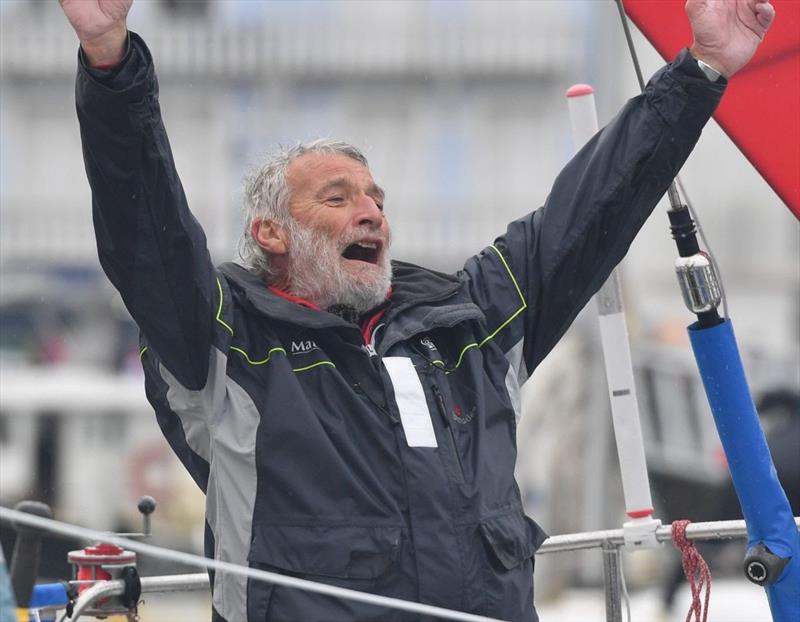
Van Den Heede on the great departure ahead for the Global Solo Challenge
by Margherita Pelaschier 16 Aug 2023 12:21 BST

Jean-Luc Van Den Heede © Jean-Luc Van Den Heede
Behind the scenes of the Global Solo Challenge, we meet a true old salt, the famous French solo navigator Jean-Luc Van Den Heede, who offers his valuable advice and support to many skippers.
Deeply convinced of the solidarity among sailors, he will follow this staggered-start event with great passion, a challenge that promises to be thrilling and full of suspense.
This veteran of circumnavigations has completed six: the BOC Challenge in 1986 and 1995, the Vendée Globe in 1989-1990 and 1992-1993, and the Global Challenge in 2004, during which he completed a westward circumnavigation against prevailing winds and currents, becoming the undisputed holder of this record. He also enriched his achievements by winning the first edition of the modern Golden Globe Race (GGR) in 2018, an "old-fashioned" race, navigating with a sextant and without external communications, following in the footsteps of the pioneers who undertook this non-stop journey for the first time in history in 1968.
Regarding the formula of the Global Solo Challenge, the new non-stop round-the-world challenge that will start on August 26th from A Coruña, Jean-Luc Van Den Heede commented: "It's an exciting format. Many people dream of going around the world, and it's much more thrilling to participate in competition with other sailors, rather than embarking on such an endeavor alone. I think this innovative concept will allow very different boats, of different classes, to compete in real time. The idea of having staggered starts to conclude with a theoretical real-time finish is very enticing. It will be a sort of chase race, where the fastest will try to catch up with the slowest, who started earlier. It will be fun."
In such a demanding competition, the challenges are plentiful. With his deep experience in these adventures, Van Den Heede asserts that: "The real challenge for the competitors is to be on the starting line. Indeed, although initially many competitors had registered, only about twenty will take the start. Therefore, the first hurdle to overcome is finding a suitable boat to participate. This requires time, money, potential sponsors, and perhaps even the help of a team. Showing up at the start of a round-the-world race is a challenge in itself. Then, once under way, the other great challenge is reaching the finish line. For example, during the last edition of the Golden Globe Race: out of 15 participants, only 3 finished it, that's just 1 in 5. Regarding the GSC, even though the boats are more competition-oriented than those of the GGR, they could still encounter breakdowns, as in all round-the-world races. However, I hope that most competitors will be able to complete the race."
Considering the round-the-world trip divided into three legs - from the start towards Cape Town, the transit in the Great South, and finally, the climb from Cape Horn to the finish - the French sailor explains his vision for each of these phases to best manage the race: "The GSC has a peculiarity compared to, for example, the races in the IMOCA class and the GGR: the competitors will start on very different dates. Therefore, the weather conditions will not be the same for the skippers who will start first in September and those who will start last in December/January. Each participant will have to adapt their strategy to their own weather conditions. The first leg towards Cape Town is essentially tactical. Some, like Vendée Globe participants, might choose to descend the Atlantic pushing close to Brazil, while others might prefer a more direct route, as was the case during the GGR in 2018. Tactical choices in response to weather conditions will be decisive in this first phase. For the second leg, the navigation will mainly be downwind. The goal is simple: sail fast, without damaging the boat up to Cape Horn. But beware, sailing fast downwind always carries risks."
Continue reading the full article here...